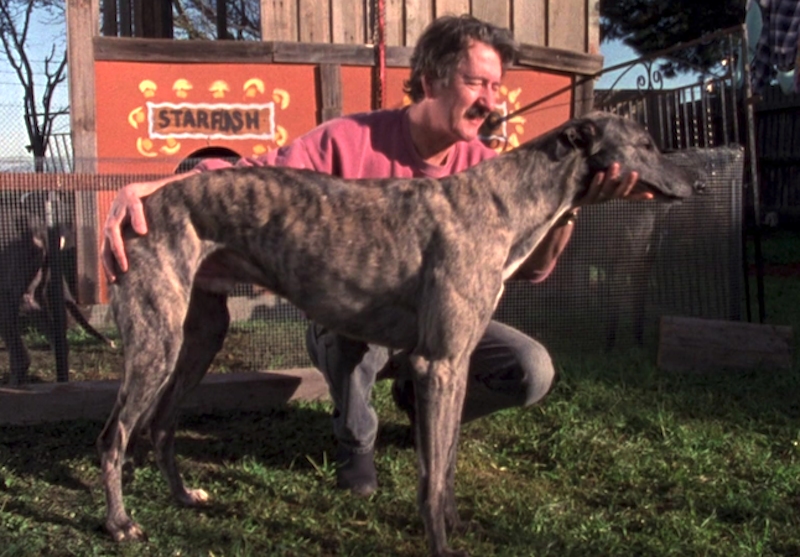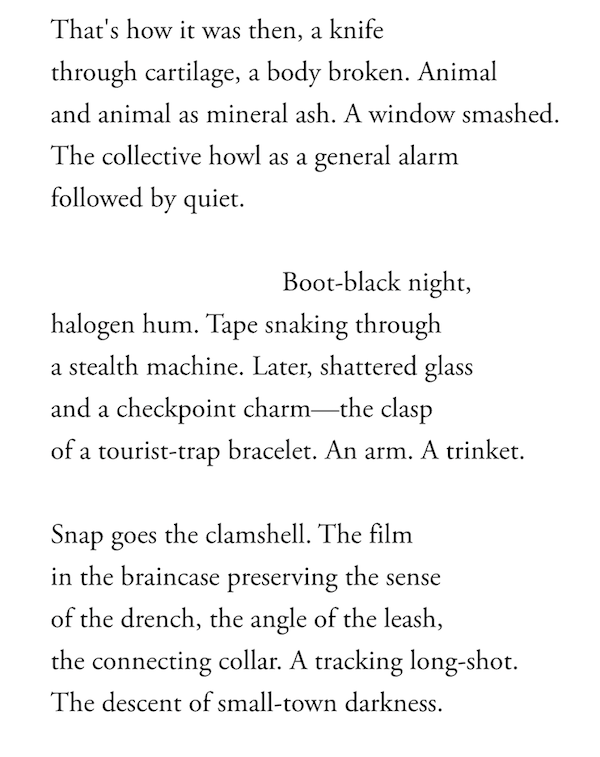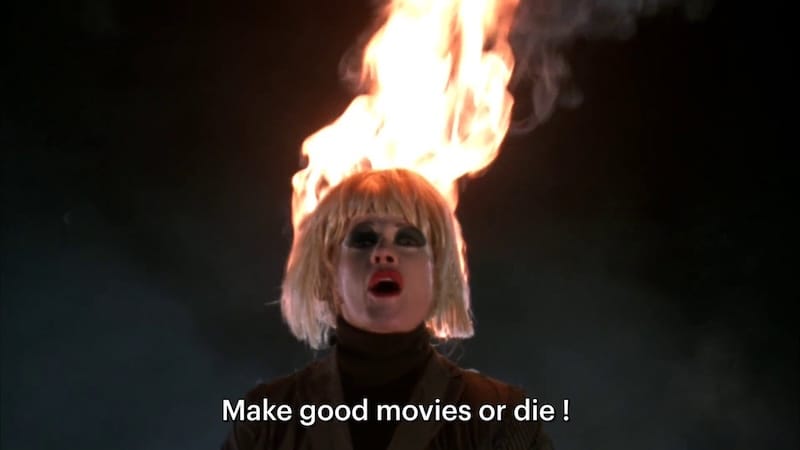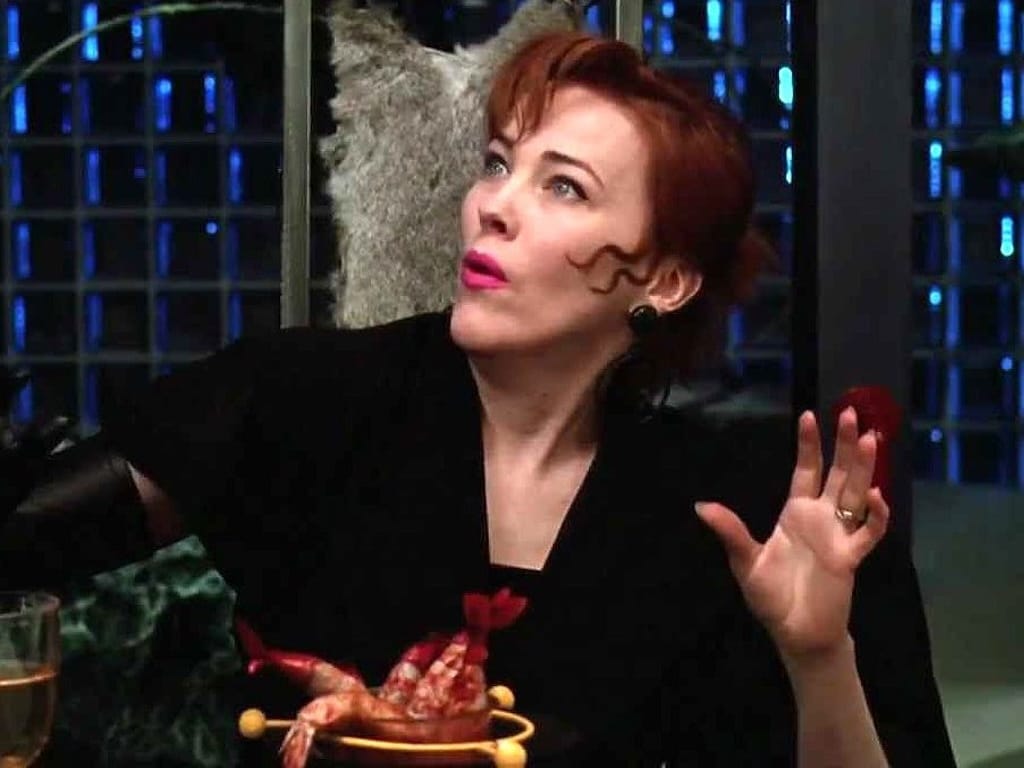Another bullshit week in suck city. But you know what... the sun is shining, it's warm enough to sit outside with "Notes to John," and the universe has blessed us with a new Palladino show. There are still bright spots even when it's awful.
Speaking of bright/awful: it would be remiss not to mention Bob, my husband Luke's best friend, who died yesterday. When Luke was going through his aimless 20s, his mom introduced them. She could sense Luke needed a mentor, someone who led an interesting life built through sheer force of will, and identified Bob as a suitable option. Despite the 40-year age difference, there was an instant connection, which turned into a long friendship full of music, beekeeping, and discussions about life. Bob wasn't technically family, but he understood Luke better than any blood relative. Without his support, Luke might have been trapped in Scranton forever, dreaming of ways to escape; Bob helped him see an alternative path and encouraged him to follow it.
I mention this because it's important to remember there are good people in the world, even if they always seem to die while RFK Jr. and his worm-chomped brain live to destroy another day. If there's one lesson to take away from Bob, it's that there's value to finding the strange, lost little weirdos and making them feel seen. They will be forever grateful.
And now, here's an awkward transition to some recommendations!
This movie is touted as one of the Australian greats akin to "Muriel's Wedding" (PJ Hogan, 1994), so I had high expectations going into it that I'm happy to report were exceeded. For anyone who fantasizes about what it would be like to have a supportive father, this movie is for you. Darryl Kerrigan (Michael Caton) is such a glass-half-full motherfucker that living a stone's throw away from an airfield isn't an auditory nuisance, but "very convenient if we ever have to fly one day." The power lines littering his yard are a "reminder of man's ability to generate electricity" instead of an eyesore. He's proud of each of his children, even his son in jail, and delights in every mediocre craft his wife produces. It's difficult to poke fun at simpleton characters like this without mocking them, and the fact that this line is never crossed is a testament to everyone involved.
When the airport tries to compulsorily acquire the Kerrigans house, the film turns into a commentary on colonialism and neoliberal capitalism that, yes, is wrapped up too neatly but who cares? My heart is warmed and I won't accept anything other than the best outcome for my fake daddy Darryl. My biggest gripe with the film is how underwritten the female characters are, although I won't complain too much because I'm so happy to encounter kind, gentle men who are the antithesis of Trumpian misogyny.

Who remembers this Thought Catalog piece from back in the day (before it became whatever the fuck it is now)? It popped into my head, so I decided to revisit it and was shocked to find it legitimately worthwhile. That's no shade to the author, who I'm unfamiliar with aside from "Illiterate," and all shade to the person I was when I first read it (lacking taste). It works exceptionally well as a piece of internet writing with a clickbait title and themes people will wildly misinterpret and discuss. At the time, it spawned response pieces like, "You Should Date an Illiterate Guy." Some found it condescending, others complained about undeveloped characters and overwriting, people mostly missed the point and loved shouting angrily into the void about it. Here's what I have to say: Hannah Horvath would have fucking loved this essay short story soliloquy, which could have very well been written by Adam Sackler. I haven't rewatched "Girls" in a long time, so I can't really support this claim, I just know in my heart that it's true.
It's not about girls who read vs. girls who don't or a life well-examined vs. a life simply lived; it's about some guy who isn't where he wants to be and needs a convenient excuse for his unhappiness. Would he be red-pilled in 2025? I actually don't think so. On some level, he's aware of his bullshit and if he doesn't kill himself by 40, maybe he'll reexamine his life in ten years and realize that both girls in the story are him. It's like that scene with Frank in S3 of "The White Lotus" where fucking a bunch of Asian women makes him realize that maybe what he wants is to be one of those Asian women getting fucked. I haven't explained any of this with particular clarity, but it's something to consider. (Tangentially related: this article in The Point about real men/Andrew Lipstein)
I love Mary Jo Bang and highly recommend all her books of poetry, especially the one inspired by Louise Brooks, "Louise in Love" (2000). "An Autopsy of an Era" comes from a volume called "The Last Two Seconds" (2015), a more anxiety-inducing read about humanity's collapse. In the video linked above where Bang reads the poem, she talks first about visiting the former GDR in Germany and reconciling the experience with how she mythologized it as a child growing up during the Cold War. She says she then spent 1.5 years watching German films in an attempt to inhabit the era before writing this gut punch of a poem:

I asked Professor Bang (who teaches at Washington University in St. Louis) which films she watched during this period and she mentioned three definites:
- "Sophie Scholl: The Final Days" (Marc Rothemund, 2006)
- The tv miniseries "Berlin Alexanderplatz" (1980, Rainer Werner Fassbinder)
- Goodbye, Lenin!" (Wolfgang Becker, 2003)
And three maybes:
- "The Lives of Others" (Florian Henckel von Donnersmarck, 2006)
- "The White Ribbon" (Michael Haneke, 2009)
- "The Baader Meinhof Complex" (Uli Edel, 2008)
For all the many valid critiques about the internet, it will never stop being cool to me that I can casually email a poet I adore and receive a response back.
I randomly found my way to John Waters in college thanks to Mondo Guerra, who "Project Runway" fans will remember from S8 of the original show and S1 of "All-Stars." (He also designed some of Onya Nurve's costumes for S17 of "Drag Race.) I don't remember if he explicitly cited Waters as a reference on the show, but his social handles at the time were @LoveMondoTrasho, which was more than enough to send me down a rat hole with the Pope of Trash. Waters and RuPaul once had a conversation that perfectly sums up what I love about both of them:
RuPaul: I’ve always said that people who have uncovered life’s twisted hoax find refuge in the irreverent and twisted and weird. Do you find that those people have changed? Are they the same, the sort of ones who flock to the irreverent?
Waters: Yeah, they’re the same people that have always been my audience… minorities that don’t even fit in their own minorities. They can’t even get along with their fellow lunatics. That’s my core audience, people in prison with a sense of humor, right? That’s where I would have the best test screenings.

I don't want to say too much about the W Magazine video, so please just watch it (and/or read the corresponding article) unless you're the kind of fool who doesn't want to hear a delightful story about jitterbugging with Richard Serra.
Katherine Mansfield may have died at 34, but the work she produced up to that point was so good it made her contemporary, Virginia Woolf, jealous enough to act cunty. Born to a nouveau riche family in 1888 New Zealand, Mansfield was educated in London and ended up living there on-and-off until her death. She had a child out of wedlock (scandal!) with a musician, left another man at the altar, and had an affair with a Polish translator who probably infected her with gonorrhea (but also introduced her to Chekhov, so... worth it?). She eventually married writer/editor John Middleton Murry and the two became friends with D.H. Lawrence and Frieda Weekley, another colorful couple. (Frieda's first husband, Ernest Weekley, was Lawrence's professor. People lost their shit when she left him and her three children to be with Lawrence.) Lawrence actually based Gudrun Brangwen, from "Women in Love" (1920), on Mansfield, so that gives you a sense of how close they were.
Although she didn't publish much due to her short life, everything she did put out is excellent, and I especially love this collection of short stories. The first three are especially worthwhile, digging into class and fucked up family dynamics in a way that feels far ahead of the time. You can read the second story in the collection, "The Garden Party," here. She knew she was going to die when she wrote most of these, so think about that while you read.
To make sure the weekend vibes are right, here's a picture of Poppy and Peek-A-Boo, two best friends (as well as lovers if they ever get married).






